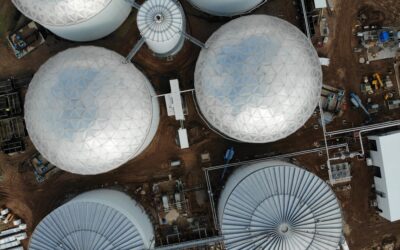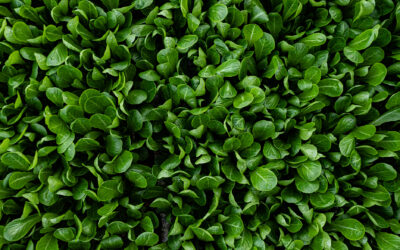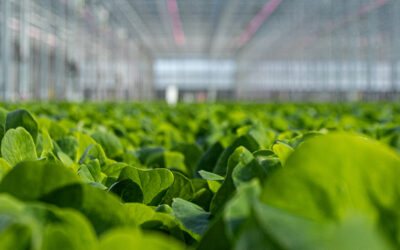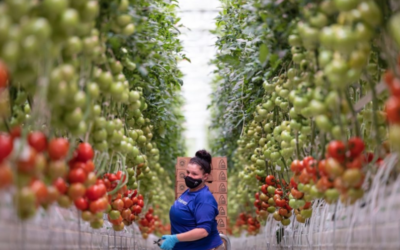Rethinking our Global Food System
Arabian Business
It’s time for action, not debate. That’s now the main message at any summit on climate change. At the Conference of Parties (COP23) talks in Bonn in November 2017, countries were told to create an “operating manual” for implementing the Paris Agreement on Climate Change and commit to more ambitious targets for sustainability by the 2020 deadline.
Keeping climate change within manageable levels can only be achieved through a shift in our agriculture industry. At least one fifth of greenhouse gas emissions in the world come from agriculture (mainly from the conversion of forests to farmland but also from livestock and crop production), according to a report in 2016 by the Food and Agriculture Organisation of the United Nations (FAO).
Agriculture is also very resource-intensive, with processes consuming around 70 percent of freshwater water globally.
It typically takes between 3,000 and 5,000 litres of water to produce 1kg of rice, 2,000 litres for 1kg of soya, 900 litres for 1kg of wheat and 500 litres for 1kg of potatoes, according to the World Wildlife Fund. The world population is expected to grow from 7.6bn today to nearly 10bn by 2050.
In parallel we are seeing an explosion in the middle class across emerging countries, who now demand a more protein-rich diet, especially in markets like China and India where beef consumption has risen drastically. These factors are going to radically change our food supply and farming practices.
We are experiencing globally a consistent pattern of consolidation at the point of sale and consumption, at grocery retail, quick-serve-restaurants, and food service. Further, we are seeing the growth in direct-to-consumer, on-line delivery models that change both the economics of food and who gets to serve the consumer.
Sustainable solutions
There are several major shifts that will support the agriculture industry to become more sustainable.
The most obvious starting point is to reduce waste. The Food and Agricultural Organisation estimates that about 1.3 billion tonnes of the food produced globally gets thrown out. Eliminating that waste could go a long way to feeding the growing world population.
Waste food can also be channelled into other beneficial reuse processes. This includes creating energy, fertiliser and other useful by-products.
New technologies will have a very large part to play in solving challenges. The agriculture industry has already completely changed in the past 100 years as it has adapted to changing consumer diets and increases in demand. Through the adoption of new technologies, farmers have been able to increase their yield and serve the market quicker than ever before.
Over the coming decade, we will continue to see new solutions like “precision irrigation” that, based on information supplied by water providers, will help farmers get better returns on their crops. We will also see farmers more widely adopt the use of drones and robots for monitoring and spraying crops.
This region has its own role to play in developing new solutions. Abu Dhabi Food Control Authority has an agriculture project that runs on recycled water treated with UV rays and has its own cooling system, making it more resilient to climate change.
The International Centre for Biosaline Agriculture (ICBA), a non-profit research facility at Dubai Zayed University, is experimenting with a new generation of greenhouses that could “triple crop” products in the UAE while using 90 percent less water and 50 percent less energy. To meet growing demands, the agriculture industry will work more closely with academia and institutions to develop future leaders and nurture promising technologies.
Farming: a big business
The retail grocery business has become a highly-concentrated industry. Mergers have continued to the point where, today, two retailers control nearly 40 percent of the US grocery markets. These retailers concentrate their buying to larger suppliers that can provide the data and products to insure consistency, value and source traceability. We are likely to see this type of industry consolidation replicated across emerging markets in the next decade.
Land, water and energy constraints, along with climate change, will affect how and where we farm and drive technology adoption. Farming will become an innovation sector that delivers the value, scale, resiliency and productivity needed by the retailers and food processors to serve emerging consumer eating and lifestyle habits.
We are watching the next chapter in agriculture’s evolution from farmer and farming into a food production industry. These trends will favour those that integrate technology and process innovation into their everyday processes, with access to large blocks of investment capital. The entire value chain of agriculture and food will be affected.
David Chen is a speaker at the World Future Energy Summit, part of Abu Dhabi Sustainability Week 2018.




